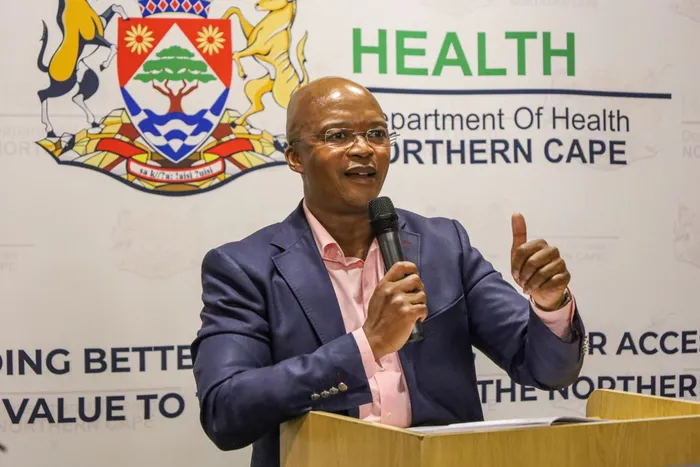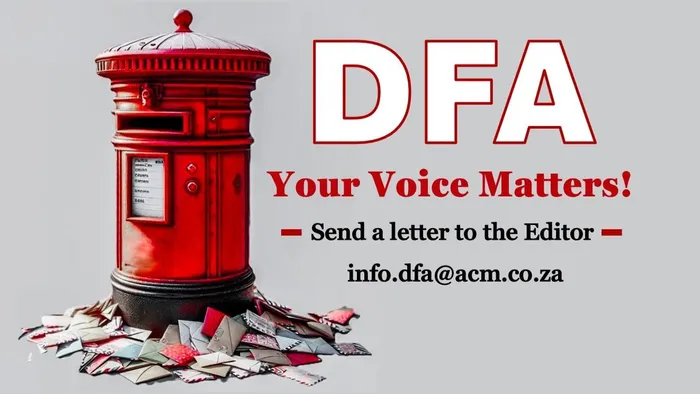
Former Northern Cape MEC for Health, Maruping Lekwene.
Image: Northern Cape Department of Health / File
By Monty Quill
WHEN the Health Ombudsman’s report on the deaths of psychiatric patients in Kimberley was released in July, the Northern Cape was united in grief and fury. The findings were not ambiguous: vulnerable people died in state care because the systems meant to protect them had collapsed from the top down. It was a portrait of cruelty through neglect – and of a Health Department crippled by years of dysfunction, weak leadership, and bureaucratic paralysis.
At the time, MEC for Health Maruping Lekwene faced a choice. He could take responsibility, step aside, and allow the department to begin rebuilding under new leadership. Or he could try to “shape things up” – his words – while remaining in the very seat where the crisis took root.I argued then that this was not a situation that could be “shaped up”. It was a situation that demanded accountability. And accountability, I wrote, had to start with resignation.
Three months later, the MEC has indeed “shipped out” – but not in the way decency or duty would dictate. Instead of accountability, we got choreography. Instead of explanation, we got secrecy. And instead of a reckoning for the suffering and deaths of patients, we got a political redeployment wrapped in party praise.
A quiet exit amid loud failures
After weeks of speculation, Lekwene’s resignation was quietly confirmed this week. For two weeks before that, neither the public nor the legislature was officially told whether he was still in charge of one of the province’s most critical portfolios. During that time, the Department of Health continued to drift: unpaid overtime for doctors and paramedics, unresolved community health worker contracts, collapsing hospital infrastructure, and no clear plan to address the leadership vacuum exposed by the Ombud’s findings.
When the announcement finally came, it was not the premier or the department who spoke first, but the ANC. Provincial secretary Deshi Ngxanga confirmed that Lekwene was being redeployed – not dismissed, not disciplined – but appointed as the party’s head of elections ahead of the 2026 local government polls. The premier thanked him for his “service”. The Department of Health said nothing at all.
In that silence lies the real scandal.
Redeployment is not accountability
The ANC’s statement reads like a send-off for a man of spotless record – “dedication”, “discipline”, “integrity”. Yet the context tells a different story. The Ombud’s July report, backed by the South African Human Rights Commission, detailed avoidable deaths at the R2.1 billion Northern Cape Mental Health Hospital and Robert Mangaliso Sobukwe Hospital in Kimberley. Patients froze to death in unheated wards, died from untreated pneumonia, or suffered irreversible brain damage after medical negligence. The report pointed directly to leadership instability and governance collapse at the highest level of the department.
Since then, the Auditor-General has flagged R15.5 billion in irregular expenditure. Opposition parties have called for a forensic audit. Health workers have threatened to down tools over unpaid overtime. And unions such as Denosa and the PSA have warned that political heads – not just doctors and nurses – must be held to account.
Against this backdrop, Lekwene’s quiet redeployment looks less like a transition and more like a political extraction. It allows the party to move him out of the firing line while maintaining the fiction of continuity and control. It spares him the embarrassment of a dismissal and spares the administration the risk of a public fight over failure.
But it does nothing for the people of the Northern Cape who have watched their health system unravel.
The cost of secrecy
EFF provincial chair Shadrack Tlhaole called the two-week delay in announcing the resignation “a blatant disrespect for oversight, accountability, and transparency”. He’s right. When an MEC resigns in the middle of a provincial health crisis, the public has a right to know why.Was it connected to the Ombud’s findings? Was it political? Was it voluntary? None of these questions have been answered.
The result is predictable: speculation, distrust, and a growing sense that the province’s health leadership operates in the shadows. The department’s refusal to comment – on the resignation, on unpaid overtime, or on the forensic investigations promised months ago – reinforces that perception.
Transparency isn’t a luxury in governance; it’s the foundation of legitimacy. Without it, even genuine efforts at reform are dismissed as spin.
A department still in crisis
Today, the Department of Health is still reeling. Emergency services remain under-staffed. Hospitals across the province are short of doctors and basic supplies. Infrastructure continues to crumble. And morale among nurses and clinicians is at rock bottom.
The appointment of acting MEC Mase Manopole provides administrative cover, but no indication of a fresh start. The same machinery, the same managers, and the same political fault lines remain in place. The systemic rot that the Ombud described has not been cut out – it has merely been repackaged.
Accountability cannot be redeployed
In any democracy, leadership must carry consequence. When lives are lost through neglect, when billions are wasted, and when oversight collapses, stepping aside is not optional – it is the bare minimum. Redeployment may solve a political problem, but it deepens a moral one.
The families of Cyprian Mohoto, Tshepo Mdimbaza, and the other victims of the Kimberley hospital tragedy deserve more than a line in a press release. They deserve justice, transparency, and a commitment that this province will never again allow its most vulnerable citizens to die in silence.
The ANC may frame this as strengthening the organisation ahead of elections. But strengthening democracy begins with accountability, not choreography.
Lekwene has shipped out, yes – but the crisis he leaves behind has not moved an inch.
…
* The opinions expressed in this article are those of the author and do not necessarily reflect the views or policies of the DFA or its staff. While we strive to provide a platform for diverse perspectives, the content remains the sole responsibility of the contributor. Readers are encouraged to form their own opinions based on a range of information sources.
** Do you have something on your mind? We’d love to hear from you! Share your thoughts, opinions, or experiences by submitting a Letter to the Editor. Your voice matters and could inspire or inform others in our community. Submit your letter via e-mail to info.dfa@acm.co.za and you could see your words featured in the DFA.

We'd love to hear from you.
Image: Morgan Morgan / DALL-E / DFA